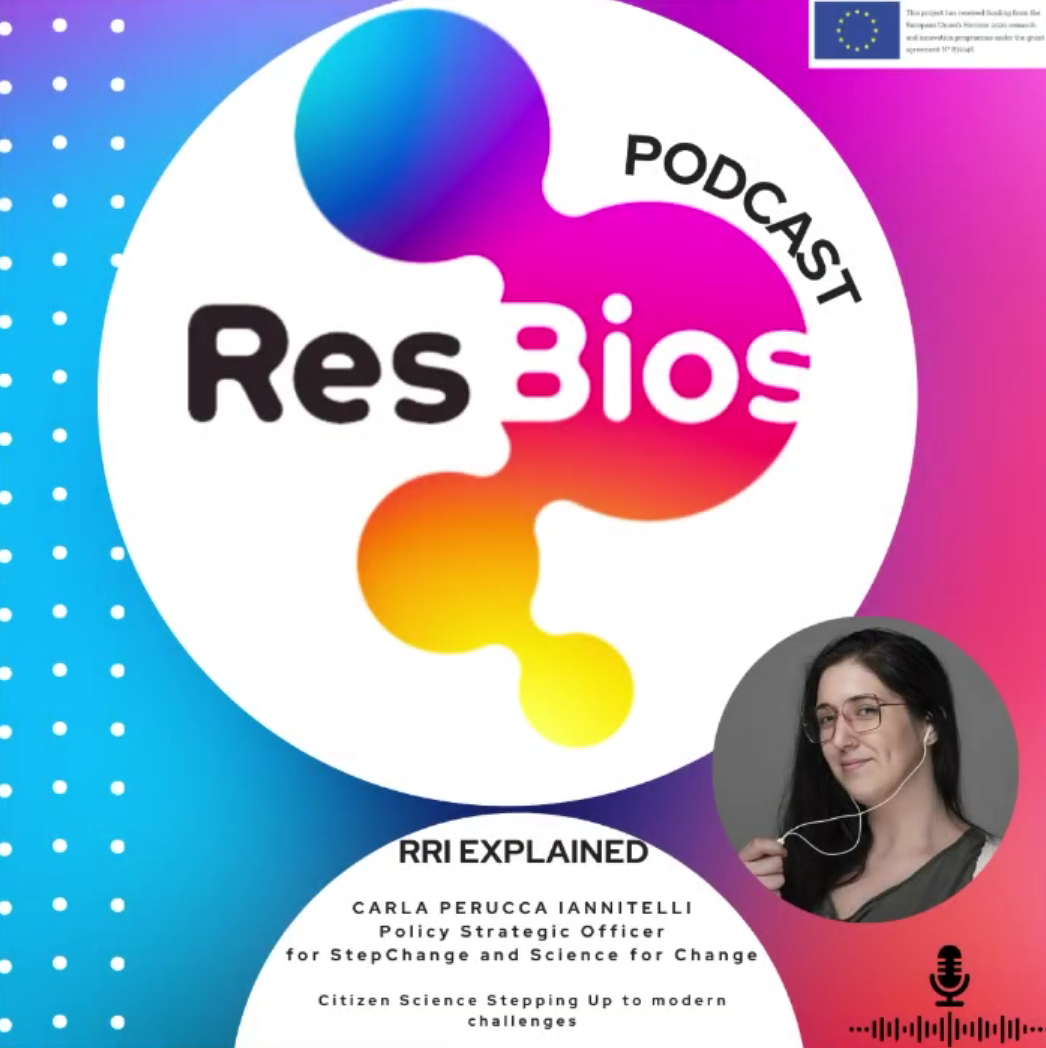The podcast series RRI Explained produced by the ResBios Project hosts this week a thoughtful discussion with our very own Carla Perucca Iannitelli, Policy Strategic Officer at Science for Change. The podcast series aims to explain why each of the key pillars of RRI is important, and how by addressing these issues we can build a better relationship between science and society.
Within this framework, Carla deeps dive into the topic of Citizen Science and stakeholders’ engagement while explaining what the goals of Step Change are. She explains why it is relevant to include diverse groups of stakeholders when it comes to citizen-led research, and how Citizen Science can be used to help engage different societal actors. During the discussion, Carla mentions the benefits of engaging diverse stakeholders both in the policy and business sectors, but she also adds that unfortunately the added value of Citizen Science still remains largely unknown for most policymakers and the business sector. She also explains that EU Member States have already developed Citizen Science strategies to support national practices and tackle local and regional challenges.
Carla adds that more training, capacity building or networking events showcasing real-life projects with high impact are needed not only to build trust among society, the industrial sector and the scientific community, but also to see the whole potential of Citizen Science, which must be taken more seriously, especially when it comes to the democratisation of policy decisions. Carla also mentions the relevance of mutual learning practices to capitalise on such practice, as well as the topic of sustainability of citizen science projects to create new business models. Last but not least, Carla discusses extreme citizen science as a framework including the quadruple helix: citizens, policymakers, industries and the academia.

